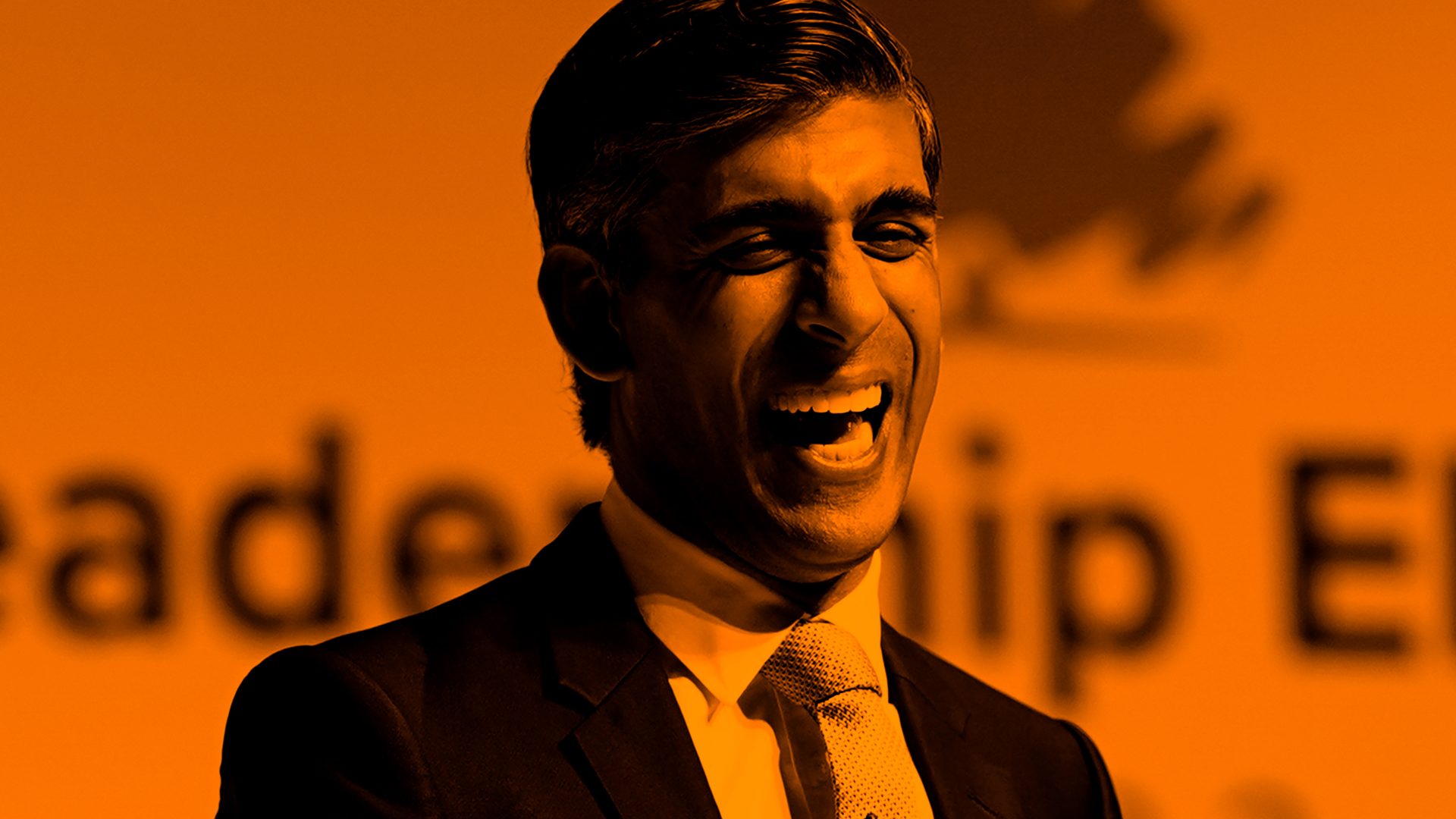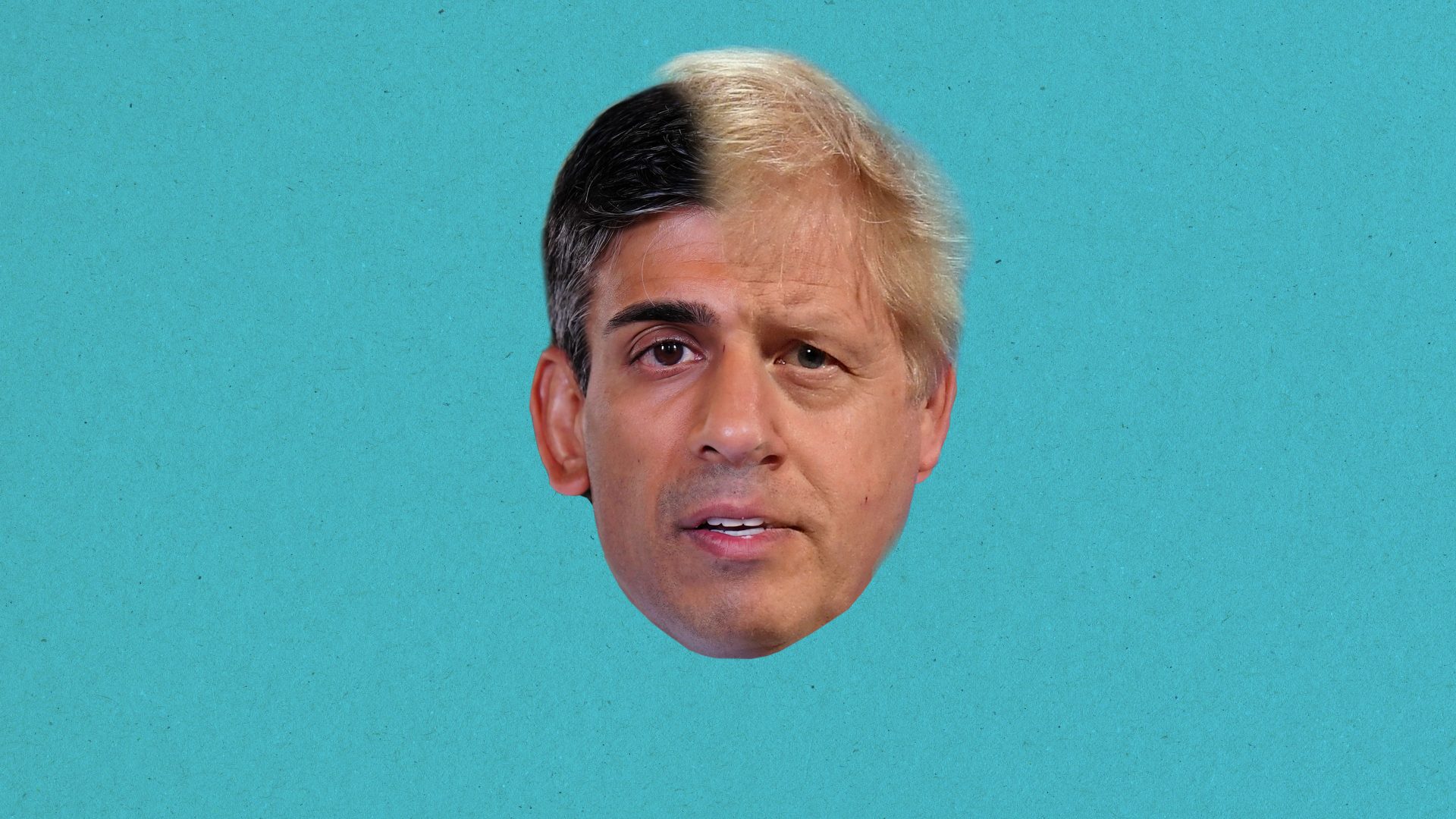Alastair Campbell’s “Britain isn’t working” piece (Diary, TNE #321) presented me with a challenge – just what, if anything, is working well at present? To give Rishi Sunak a chance, I’ve reduced the requirement to just “working”, and have resolved – just like the government – not to mention Brexit by name.
Our council empties the bins on the days it says it will; my pension gets paid on time; the school where I’m a governor is officially good and helps parents to cope (though a lot of that is down to the goodwill of the staff, as our funding is insufficient to cover all our essential costs). Conversely, if the government needs my money (eg car tax) it’s very efficient – and often threatening – in demanding it, so it’s good at getting the funds in. After that, I’m struggling.
Some of our motorways aren’t safe, but the trains often aren’t running or don’t run on time and the idea of an integrated public transport system is a fantasy in most places, so getting around by public transport is high risk; I can’t get a face-to-face appointment with a GP, and I never know which GP I might end up speaking to on the very rare occasions I need to; the NHS is in such a parlous state that I just hope I don’t get seriously ill or have a genuine need to go to A&E any time soon.
I don’t feel that my vote counts; nearly all the businesses I have dealings with are short of staff and often hopelessly inefficient as a result, often despite their staff’s best efforts; the former public utilities are in hock to their shareholders, who ensure a woefully inadequate level of investment in infrastructure for power and water; it’s much more difficult to go to EU countries than it used to be; the choice and quality of goods available in supermarkets have reduced, but prices have rocketed; food banks (our numbers are world-beating) are running out of donations, discontent is at a record level.
I could go on. Rejoining the single market and customs union and bringing back freedom of movement are needed to address many of the above problems. A general election, a change of government and reform of the voting system would help significantly, but so would a good dose of national humility – we aren’t half as good as ministers, much of the media and many voters would have us believe.
So, the answer to Alastair’s question is not much, and increasingly less. Part of the answer is blindingly obvious, but (as my mother used to say) there’s none so blind as those that won’t see.
Rex Nesbit
Alastair Campbell mentions the old advertising slogan “Labour isn’t working” and suggests an update to “Britain isn’t working”. If we’re talking about advertising slogans, what about “Britain is FCUKed?”
Benedict Marshall
Via Facebook
Reading Alastair Campbell’s brilliant piece, my thoughts turned (as they often do) to Bob Dylan and the song Everything Is Broken from the Oh Mercy album:
“Broken hands on broken ploughs; Broken treaties, broken vows. Broken pipes, broken tools; People bending broken rules. Hound dog howling, bullfrog croaking… Everything is broken.”
Alexander Blackburn
Aching to vote
Mitch Benn suggests some comic ways the Conservatives could save themselves from humiliation in 2024 (“Could these tricks save Tories from defeat?”, TNE #321).
What they evidently see as their real path to victory is much less amusing: the continued demonisation and mistreatment of migrants, together with voter suppression through the unnecessary ID system.
I cannot wait for the chance to vote them out.
Nicole Broughton
Design fault
Re: Brexomertà (TNEs #321 and 320) and other new phrases to describe Brexit.
When the hapless customer of a software product complains of bugs, the software engineer responsible will tell him it is “working as designed” or WAD. His reported “bug” is in fact a “feature”.
So, Brexit is in fact working: it is WAD (working as designed). The hardness of the borders between Britain and the EU and Northern Ireland are thus features of the design of the Trade and Cooperation Agreement and the Northern Ireland Protocol.
Gerald Canning
Since new phrases seem to be in vogue at TNE, can I direct your attention to the one coined by Penny Mordaunt recently? She has opened three new food banks in her constituency, but insists on calling them Food Pantries instead. I’m finding it hard to swallow.
Nicki Payne
Reichs wrong
Tanit Koch (Germansplaining, TNE #321) writes on the Reichsburger movement: “They disregard state laws and institutions because, they claim, Germany isn’t a sovereign nation and is still under allied command.”
In Britain, such ideas seem strangely familiar. At least in Germany they haven’t managed to take control of the government yet!
Peter Wilton
Woke up
Re: “Wokeness is a bad guide to history” (TNE #321). Is Dominic Sandbrook arguing against woke values (caring about racism, sexism, homophobia, climate change, Brexit and being tolerant, kind, compassionate, empathetic and inclusive) or is he arguing against boastfulness, oversimplification and being judgemental?
If it’s the latter, are these exclusively woke traits that don’t apply to non-woke people and do they apply to all or just some woke people? Or is he being too simplistic and judgemental in his arguments?
Sarah George
Bristol
It is disappointing that discussions about “woke”, “wokeism” “wokerati” have now spread from the Daily Mail and GB News to TNE.
Some critics of woke seem to be exhibiting a form of inverted wokism much like the so-called inverted snobbery of the 1960s and 70s.
Steve Flagg
Bad apples
Well said Robert Boston (Letters, TNE #321). At least in the scandal in the European Parliament the police are actually involved. Whereas in Westminster we have leave of absence and then any allegations are buried in minor sub-committees for months and possibly years on end.
Dieter Nowak
The response to corruption in Westminster is a seat in the House of Lords.
Rudi Konrath
While the media covers Eva Kaili, allegedly caught doing Qatar’s bidding for cash, the person who seems to have slipped its minds is King Charles.
When it comes to Qatari cash converters, where are all the questions related to Charlie’s cash – the millions he accepted in shopping bags (how pedestrian) along with the questions about Fifa and the MEP?
Amanda Baker
Edinburgh
Save the NHS
“The NHS dream is dying” by Ian Kennedy (TNE #320) asks, “can Britain have a grown-up conversation about its health service?” However well-intentioned the article, this is what the Tories want; for people to question the validity of the Labour project of the NHS.
They have progressively starved it of cash in real terms, and undermined the ethos of universal healthcare free at the point of delivery.
We ought to care more about the NHS; it is a defining issue for what we think the UK should stand for. Are we a caring society that engages ALL parts of the country, or are we a country stripping costs and jobs in a race to the bottom? We are better than the latter.
Jennie Shorts
Via Facebook
Don’t get me wrong, but can Britain have a grown-up conversation about ANYTHING these days?
Matthias Schrerer
Quit Twitter
Twitter may be “a gift to publishing” (Charlie Connelly on Books, TNE #320) but its moderation now appears to tolerate racism and Covid disinformation. I’ve left Twitter, and I won’t be back while Elon Musk is involved.
Mike String
Wider Wales
Peter Trudgill is always so interesting and entertaining to read, this time on Argentina and its languages (TNE #320). There’s yet another language in Argentina – Welsh. It’s still spoken and flourishing in Patagonia. Immigrants from Wales went there in 1865, seemingly to preserve the language and culture of their homeland that they considered to be under threat. They called it Y Wladfa.
I have a book of poems in Welsh by the Patagonian Irma Hughes de Jones, born in the very Welsh Treorci, Dyffryn Camwy. A few years ago, a minister of religion from Patagonia officiated at my cousin’s funeral in Wales. He did it in Welsh – with a south Wales accent. His other language was Spanish. No English.
Ian Jones
I’ve seen the Argentinean writer Jorge Luis Borges quoted as saying: “El argentino es un italiano que habla español, piensa en francés y querría ser inglés” (“The Argentinian is an Italian who speaks Spanish, thinks French and would like to be English”).
Xavier Kreiss
Via Facebook
High and low
Paul Mason argues that “to save British business, we must learn to live with high migration” (TNE #319). Too many people simply have no concept of the impact of ever-growing numbers on infrastructure, food security and sustainability of nations. The UN secretary general warns that “we are sleep-walking into a disaster”.
Migration has enriched many societies, but believing fantasy economists’ claims that large-scale movement of people to developed countries benefits “flagging” population growth and counters “ageing populations” is environmentally and economically illiterate.
Brian McGavin
Wilmslow, Cheshire
Got it taped
Having a clear-out, I came across a box of cassette tapes (younger readers, feel free to Google these). Most are laboriously compiled collections of my favourite tracks of the time.
In the 80s and 90s I played these songs to death while driving to France, Spain and Portugal in the days when, travel to Europe’s holiday resorts was unlimited. I was intrigued to see that there among the handwritten track list on one tape was a song called New Europeans (Ultravox from the album Vienna). What prescience!
Ed Lewis
Potters Bar, Herts
Scot free
It is always amusing to note the claims from certain quarters that higher income tax rates as announced in the recent budget will make Scotland a less attractive place to live and work. There will apparently be a “brain drain” south of the border where those earning more than £27,580 will pay less income tax than in Scotland.
What this neglects to highlight is that income tax is only one element of taxation. The majority of Scottish council taxpayers, for example, are on average paying £590 a year less than they would in England.
Those parties neglect to mention the free tuition for Scottish students, with those south of the border having to pay over £9,000 a year. Prescription fees in Scotland are free, too.
Let us also not forget that better-funded public services are a key element that make somewhere an attractive place to live.
Alex Orr
Edinburgh



